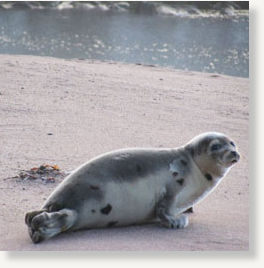
More than 200 harp seals turned up dead across remote beaches along the coast of the province.
"It's really one that's got us baffled," said Dr. Garry Stenson, a biologist with Fisheries and Oceans Canada.
When Stenson received reports of seals turning up dead, he flew into towns in northern Newfoundland and Labrador to collect their frozen carcasses.
The seals appeared to have been healthy adults, he said.
But tests and examinations conducted by the province's veterinary pathologist failed to turn up anything further.
"They had a good thickness of fat on them, no net marks, no signs of being shot or anything like that, as well as no signs of disease in any of the organs," Stenson said.
He said the one cause of death that's difficult to determine in seals is drowning.
Despite the unexplained deaths, he said, the harp seal population in the northwest Atlantic has never been healthier, with a population close to nine million.
He also said it's normal for hundreds of thousands to die every year.
"What's unusual is to have a group come in, where we get two or three a day over an extended period, or where we get a large number - over 20 or 30 - that's the unusual aspect to it, without any real cause of death that we can determine."
Scientists say the only certainty in these mysterious deaths is that they've stopped happening, at least for now.



Carbons.